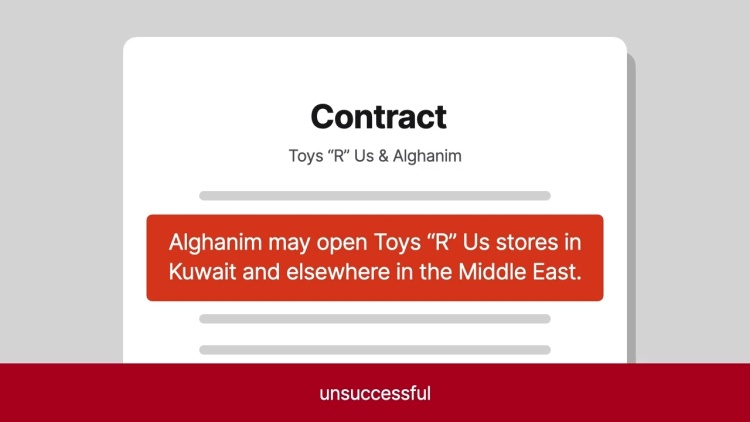Yusuf Ahmed Alghanim & Sons, WLL v. Toys ‘R’ Us
United States Court of Appeals for the Second Circuit
126 F.3d 15 (1997)
- Written by Robert Cane, JD
Facts
In 1982, Toy “R” Us, Incorporated (defendant) entered into a licensing and technical-assistance agreement (agreement) with Yusuf Ahmed Alghanim & Sons, WLL (Alghanim) (plaintiff). Alghanim opened several stores in Kuwait under the Toys “R” Us brand. These stores lost over $6 million during an 11-year period. In 1992, Toys “R” Us sought to exercise its right to terminate the agreement. However, Toys “R” Us and Alghanim failed to reach a resolution with respect to termination of the agreement. Consequently, Toys “R” Us initiated an arbitration with the American Arbitration Association, seeking a declaration that the agreement was terminated. Alghanim counterclaimed for breach of contract. The arbitrator awarded Alghanim $46.44 million for lost profits and issued detailed findings and legal conclusions in a 47-page opinion. In this opinion, the arbitrator carefully considered the law regarding lost profits and the terms of the agreement. Subsequently, Alghanim petitioned the United States District Court for the Southern District of New York to confirm the arbitration award under the Convention on the Recognition and Enforcement of Foreign Arbitral Awards (convention). Toys “R” Us filed a motion to vacate the award under the Federal Arbitration Act, arguing that the award was in manifest disregard of the law and the terms of the agreement. The district court denied the motion of Toys “R” Us and affirmed the arbitration award.
Rule of Law
Issue
Holding and Reasoning (Miner, J.)
What to do next…
Here's why 907,000 law students have relied on our case briefs:
- Written by law professors and practitioners, not other law students. 47,100 briefs, keyed to 996 casebooks. Top-notch customer support.
- The right amount of information, includes the facts, issues, rule of law, holding and reasoning, and any concurrences and dissents.
- Access in your classes, works on your mobile and tablet. Massive library of related video lessons and high quality multiple-choice questions.
- Easy to use, uniform format for every case brief. Written in plain English, not in legalese. Our briefs summarize and simplify; they don’t just repeat the court’s language.





